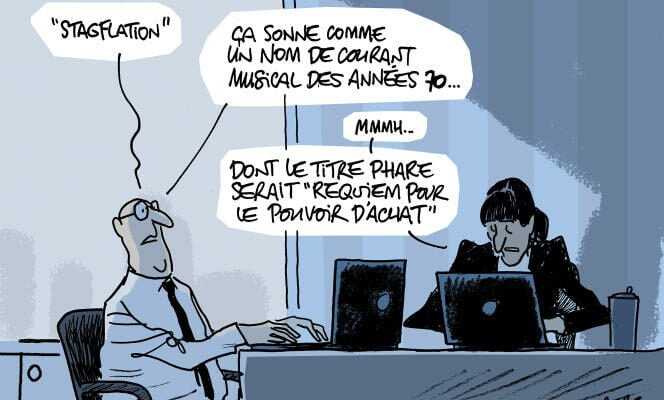A major geopolitical upheaval causing a violent energy shock; the price of gasoline which blazes, then the inflation which seizes the whole economy; growth that suddenly slows… We are in the 1970s, but the parallels with the current period are obvious. At the time, the explosion came from OPEC, which decided in 1973 to increase the price of a barrel of crude oil by 70% in retaliation for the Yom Kippur War in Israel, to demand the liberation of the occupied territories.
Two years later, in 1975, France was in recession (with a Gross Domestic Product falling by 1%) and inflation was close to 12%. In 1976, the bar of one million unemployed was exceeded. West Germany reached the same threshold the following year.
“France has no oil, but it has ideas”, then boasts the slogan. In the name of patriotism, it is necessary to save energy: President Valéry Giscard d’Estaing introduces summer time, television broadcasts are stopped at 11 p.m. and shops are ordered not to light their windows at night. In the United Kingdom, the phenomenon is much more brutal: in 1974, inflation reached a peak of 23%, the recession was 1.5% and the government decided to regulate the price of bread. The BBC interviews a man who transformed his car to run on coal: of course, you have to downshift a little more on the hills, but the savings made are worth it, he says…
Nobody knows it yet but the “glorious thirty” are over. A word, invented in 1965 by British Conservative MP Iain Macleod, is becoming widespread: “stagflation”, a mixture of economic stagnation and inflation.
An alarmist statement from the IMF
Five decades later, is history stuttering? The war in Ukraine is causing a major energy shock. On Friday March 4, a barrel of Brent was close to 120 dollars, the highest for fourteen years: this represents a 25% increase since the entry of Russian troops into Ukraine on February 24, and a doubling over one year. The price of gas in Europe has also doubled since the start of the war.
On Saturday, the International Monetary Fund (IMF) released an alarmist statement: “The ongoing war and sanctions will have a severe impact on the global economy.” In addition to energy prices, the IMF points out that the price of wheat and other food products have soared.
The economists of the American bank JP Morgan took out their calculators. For them, the rise in raw materials should cause an additional point of inflation and remove a point of growth throughout the world. For the euro zone, in the front line due to its geographical proximity to Ukraine and its dependence on Russian gas, growth should fall to 2.8%, instead of 3.5%, according to the firm Capital Economics.
You have 60.33% of this article left to read. The following is for subscribers only.
